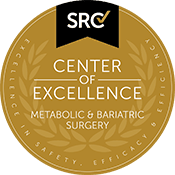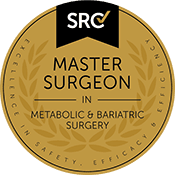
- Expertise
- Compassion
- Success
Lose the Weight and
Gain Back Your Life!
Vitamins to Take after Bariatric Surgery

Some bariatric patients believe that the nutritional instructions they receive from their surgeons are suggestions designed to help them maximize their weight loss. In reality, the instructions are more important than that. By virtue of having restricted food consumption and a different digestive process, bariatric patients will see a shift in their natural intake of key vitamins and minerals. To avoid negative health consequences, Dr V. Kuzinkovas strongly encourages his patients to take certain vitamins and supplements.
Calcium (and Vitamin D)
Calcium is one of the most important minerals in the body, responsible for building and maintaining strong bones. Without sufficient calcium intake, the body will begin to extract calcium from the bones, in turn weakening them. Some bariatric patients fail to consume enough calories to acquire sufficient calcium, and some develop an intolerance to lactose after their surgery, which makes it even more difficult to consume sources of calcium.
For most patients, two daily doses of calcium citrate is the way to make up for a calcium deficiency. It is always a good idea to take vitamin D along with calcium supplements since it better allows the body to absorb the calcium.
Vitamin B12
Also known as cobalamin, B12 is critical in the processes of DNA production, red blood cell creation, metabolism and nerve function. Because foods like meat, poultry and fish are rich in B12, vegetarians are more likely to show insufficient levels of this vitamin. Bariatric surgery patients are also susceptible to B12 deficiency because the vitamin does not absorb properly when it skips the intestinal tract. For that reason, patients who have had gastric bypass or duodenal switch are especially in need of extra vitamin B12.
A lack of B12 can lead to anemia, memory problems, excessive tiredness and problems within the nervous system. B12 can be taken as its own supplement, as part of a multivitamin or even in the form of a nasal spray.
Iron
Like vitamin B12, meat is one of the primary sources of iron. Bariatric patients — again, especially gastric bypass or duodenal switch patients — are at risk for having insufficient levels of iron and developing anemia. Fortunately, iron is a part of many types of multivitamins.
When taking iron supplements, Dr Kuzinkovas recommends that his patients swallow them at a separate time from the calcium supplements since iron can interfere with calcium absorption in the body.
Dr Kuzinkovas Cares about Your Ongoing Health
During the aftercare phase, each of Dr Kuzinkovas’s patients will receive more specific vitamin and supplement instructions that factor in their age, gender, size, preexisting health factors and the type of surgery they had performed. To discuss any part of post-bariatric surgery life, or to consult with Dr Kuzinkovas on weight loss surgery in general, please call Advanced Surgicare clinic at 1300 551 533.





